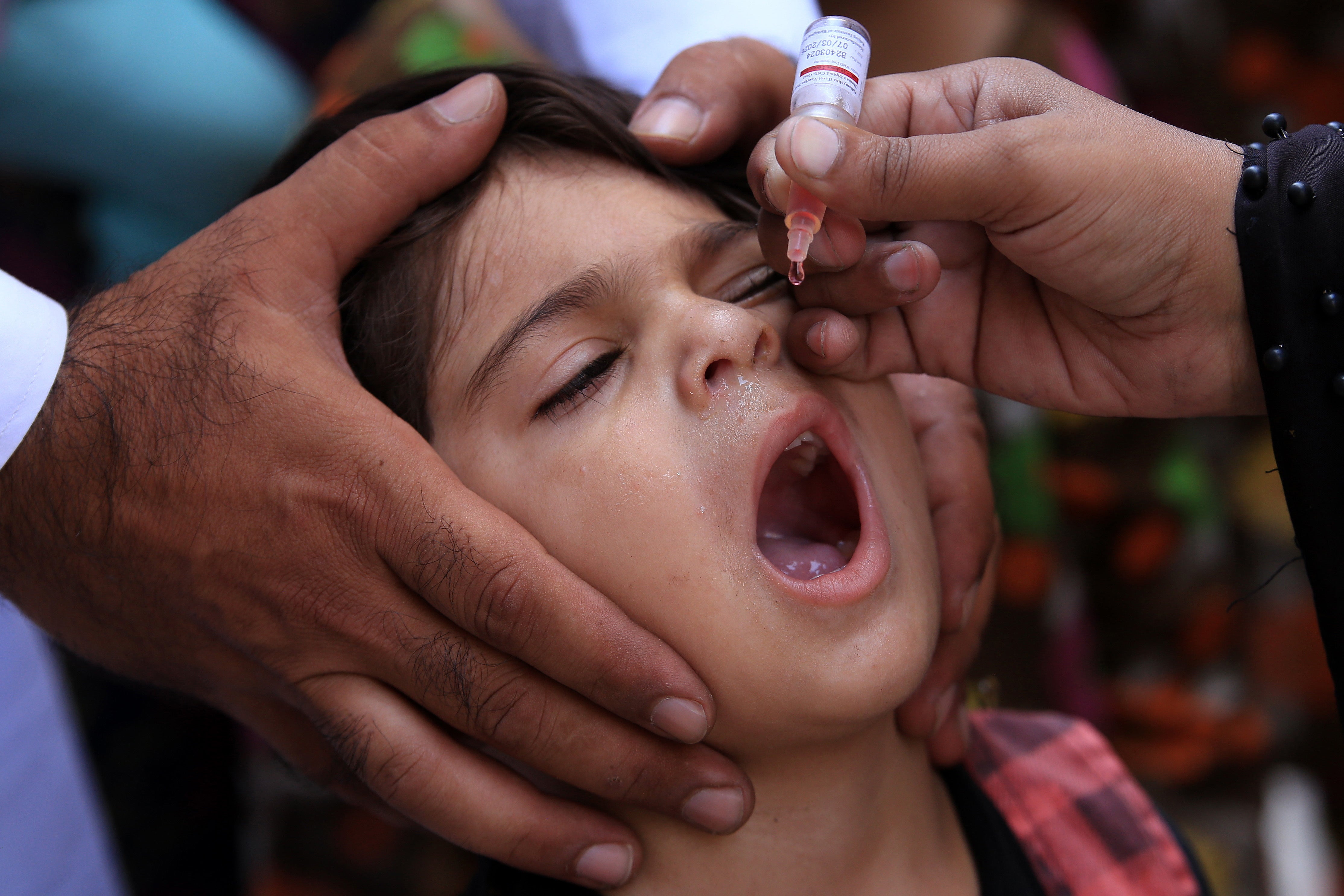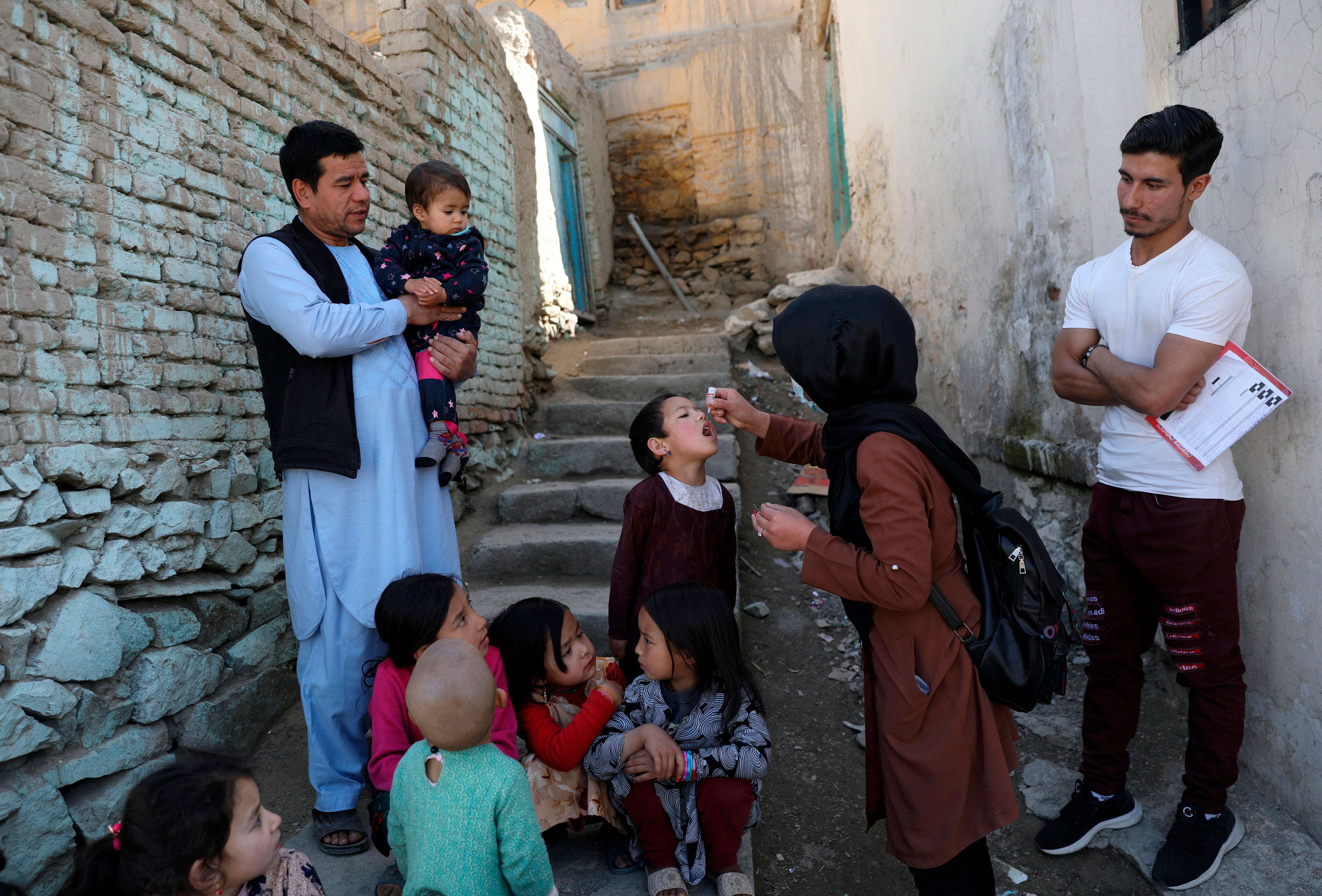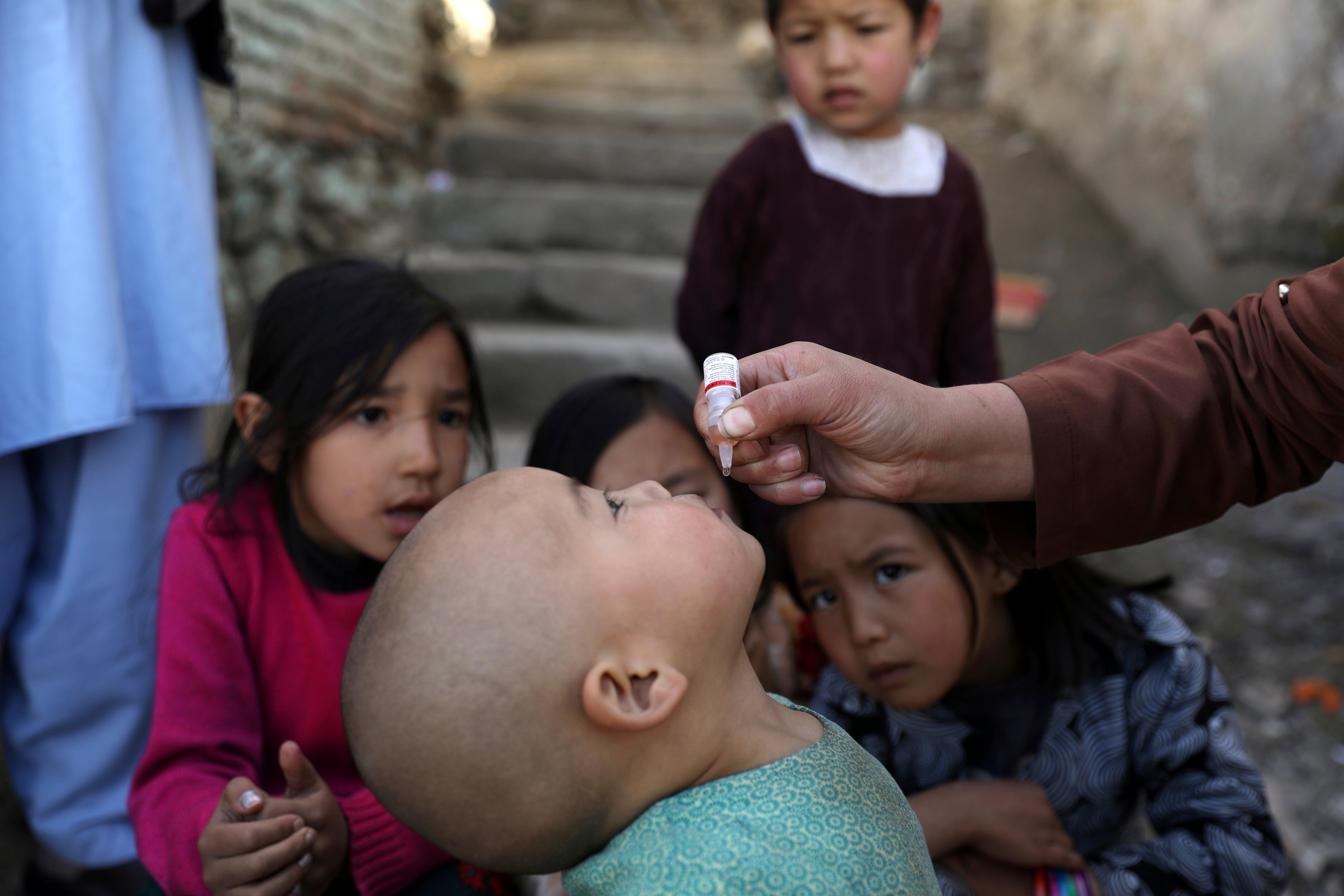Taliban suspends polio vaccination campaigns in Afghanistan, UN says
The UN says the Taliban have suspended polio vaccination campaigns in Afghanistan

Your support helps us to tell the story
From reproductive rights to climate change to Big Tech, The Independent is on the ground when the story is developing. Whether it's investigating the financials of Elon Musk's pro-Trump PAC or producing our latest documentary, 'The A Word', which shines a light on the American women fighting for reproductive rights, we know how important it is to parse out the facts from the messaging.
At such a critical moment in US history, we need reporters on the ground. Your donation allows us to keep sending journalists to speak to both sides of the story.
The Independent is trusted by Americans across the entire political spectrum. And unlike many other quality news outlets, we choose not to lock Americans out of our reporting and analysis with paywalls. We believe quality journalism should be available to everyone, paid for by those who can afford it.
Your support makes all the difference.The Taliban have suspended polio vaccination campaigns in Afghanistan, the UN said Monday.
Afghanistan is one of two countries in which the spread of the potentially fatal, paralysing disease has never been stopped. The other is Pakistan.
News of the suspension was relayed to UN agencies right before the September immunization campaign was due to start. No reason was given for the suspension, and no one from the Taliban-controlled government was immediately available for comment.
A top official from the World Health Organization said it was aware of discussions to move away from house-to-house vaccinations and instead have immunizations in places like mosques.
The WHO has confirmed 18 polio cases in Afghanistan this year, all but two in the south of the country. That’s up from six cases in 2023.
“The Global Polio Eradication Initiative is aware of the recent policy discussions on shifting from house-to-house polio vaccination campaigns to site-to-site vaccination in parts of Afghanistan,” said Dr. Hamid Jafari from the WHO. “Partners are in the process of discussing and understanding the scope and impact of any change in current policy.”


Anti-polio campaigns in neighboring Pakistan are regularly marred by violence. Militants target vaccination teams and police assigned to protect them, falsely claiming that the campaigns are a Western conspiracy to sterilize children.
The suspension of the September campaign is a blow for the eradication of polio in Afghanistan.
As recently as August, the WHO reported that Afghanistan and Pakistan were continuing to implement an “intensive and synchronized campaign” focusing on improved vaccination coverage in endemic zones and an effective and timely response to detections elsewhere.
During a June 2024 nationwide campaign, Afghanistan used a house-to-house vaccination strategy for the first time in five years, a tactic that helped to reach the majority of children targeted, the WHO said.

But southern Kandahar province, the base of Taliban supreme leader Hibatullah Akhundzada, used site-to-site or mosque-to-mosque vaccination campaigns, which are less effective than going to people’s homes.
Kandahar continues to have a large pool of susceptible children because it is not carrying out house-to-house vaccinations, the WHO said. “The overall women’s inclusion in vaccination campaigns remains around 20% in Afghanistan, leading to inadequate access to all children in some areas,” it said.
Any setback in Afghanistan poses a risk to the program in Pakistan due to high population movement, the WHO warned last month.
The campaign suspension is the latest obstacle in what has become a problematic global effort to stop polio. The initiative, which costs about $1 billion every year, has missed multiple deadlines to wipe out the disease and technical mistakes in the vaccination strategy set by WHO and partners have been costly.
The oral vaccine has also inadvertently seeded outbreaks in dozens of countries across Africa, Asia and the Middle East and now accounts for the majority of polio cases worldwide.
This was seen most recently in Gaza, where a baby was partially paralyzed by a mutated strain of polio first seen in the oral vaccine, marking the territory’s first case in more than 25 years.